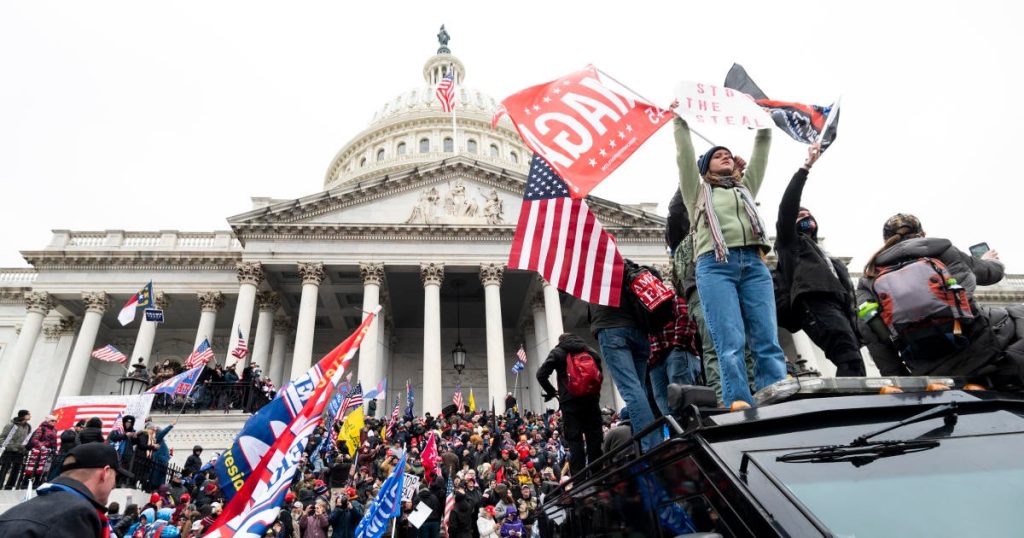Congress is set to meet Monday to count the Electoral College votes and confirm Donald Trump’s victory in the 2024 election, while those charged in the Jan. 6 Capitol riot are eagerly awaiting Trump’s promised pardons. Over 1,500 individuals have been charged by the Justice Department in connection with the riot, including some who used deadly weapons against law enforcement officers and others accused of conspiring to resist the peaceful transfer of power. More than 1,000 defendants have pleaded guilty, and around 220 have been convicted at trial, with hundreds already completing prison terms. The Justice Department is currently seeking the public’s help to locate at least five fugitives.
Despite the ongoing pursuit of criminal charges by the outgoing U.S. attorney in Washington, D.C., many Jan. 6 defendants are hopeful that Trump’s planned pardons will result in their convictions being erased and records wiped clean. Trump has expressed his inclination to pardon many of the defendants, especially those he believes were unfairly prosecuted by the Department of Justice. He has also stated that some individuals may not receive a pardon due to their actions during the riot. The process for reviewing pardons for the hundreds of Jan. 6 defendants remains unclear.
Trump’s nominees for attorney general and FBI director, Pam Bondi and Kash Patel respectively, may have the authority to halt the Capitol breach investigations and influence the administration’s clemency strategy. The majority of Jan. 6 defendants were charged with nonviolent crimes, such as illegal entry into the Capitol, with many supporters arguing that some suffered unduly harsh penalties for their actions. Advocates for the defendants have pushed for pardons, contending that certain charges were too severe, jury pools were biased, and some individuals have faced unfair trials.
Members of far-right groups like the Proud Boys and Oath Keepers, charged with seditious conspiracy, have received some of the harshest sentences among Jan. 6 defendants. Both Enrique Tarrio and Stewart Rhodes, leaders of these groups, have been convicted of using force to oppose the federal government. While some argue for a pardon for these defendants, saying it would help maintain their veteran benefits, others believe that the cases have been prosecuted based on substantial evidence, including extensive video footage from the riot. If pardons are issued, the convictions could be wiped clean from the judges’ dockets.
Federal judges overseeing the Jan. 6 cases are concerned about what lies ahead, with potential pardons posing a threat to the convictions and erasing any deterrent effect on future violence. More than 140 officers were assaulted during the Capitol riot, and multiple people died from the attack and its aftermath. Any pardon issued by Trump could nullify the rulings made by these judges, who have emphasized the significance of the events of that day. The uncertainty surrounding the communication of pardon decisions to the courts and federal prison system poses a challenge for those awaiting clemency. Despite the potential for pardons, some believe that future investigations should avoid the overcharging seen in the prosecution of Jan. 6 defendants.


